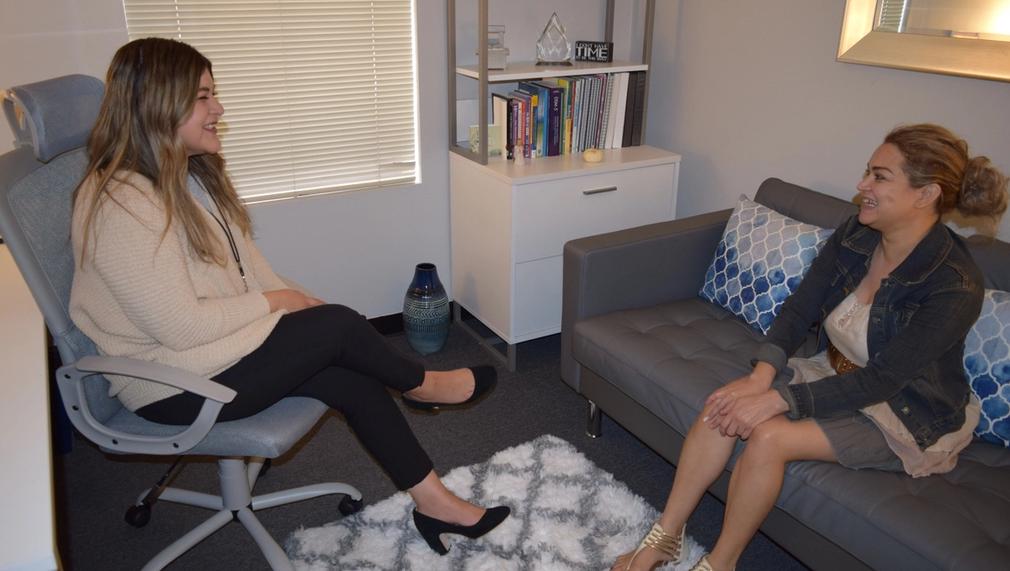Empowering Low-Income Adults and Families to Navigate Complex Systems
This project/program would empower underserved communities by providing resources and support to navigate complex public systems such as Medi-Cal, the Department of Children and Family Services (DCFS), CalFresh, and the Los Angeles Unified School District (LAUSD). Recognizing the barriers faced by these communities—including language barriers, fear of discrimination, immigration concerns, and lack of advocacy skills—we propose a comprehensive program that includes workshops, technological tools, and personalized assistance.

What is the primary issue area that your application will impact?
Mental health
In what stage of innovation is this project, program, or initiative?
Expand existing project, program, or initiative (expanding and continuing ongoing, successful work)
What is your understanding of the issue that you are seeking to address?
Providing mental health care does not take place in a vacuum. It’s difficult to address depression, anxiety, or other mental health issues if a client is food insecure or worried if they will be able to stay housed. Through the California Institute for Behavioral Health Solutions, ECDA worked with focus groups on improving equity in mental health for underserved populations. Focus group participants stated how difficult it could be to navigate the different entities of Medi-Cal, DCFS, CalFresh, or LAUSD. The systems can be very confusing and frequently require navigating online systems that are challenging for people uncomfortable with technology or that are not set up for people who only have a phone, rather than a computer. Focus group participants asked for support to learn how to navigate these systems, such as hosting workshops to teach them how these systems work, access to technology, and one-on-one help from staff to guide them through the different issues they face.
Describe the project, program, or initiative this grant will support to address the issue.
ECDA utilizes a multi-disciplinary treatment approach to provide outpatient individual, group and family therapy, case management, medication support services, family preservation services, and evidence-based practices. We provide onsite, tele-health, and school and field-based services in clients’ homes or other non-traditional locations. ECDA serves roughly 1,500 clients annually, focusing on the low-income children, adults, and families in the San Fernando Valley who are the most likely to experience barriers to accessing mental health services. ECDA programs and services help participants:
Eliminate high-risk behaviors and maintain safety,
Improve functioning at school, home, and the workplace, Acquire daily living skills,
Effectively manage mental health disorders, and Build healthy families.
Improve access to services for Spanish Speaking and Latinx consumers.
This pilot project aims to empower underserved communities in Los Angeles by providing resources and support to navigate complex public systems such as Medi-Cal, the Department of Children and Family Services (DCFS), CalFresh, and the Los Angeles Unified School District (LAUSD). Recognizing the barriers faced by these communities - including language barriers, fear of discrimination, immigration concerns, and lack of advocacy skills - we propose a comprehensive program that includes workshops, technological tools, and personalized assistance.
Describe how Los Angeles County will be different if your work is successful.
In the short term, we want to improve the mental health of the clients we serve by ensuring that they have access to stable housing, sufficient food, and access to health care, with a particular focus on ensuring that they can access SNAP benefits, MediCal, housing. We will also teach our clients how to navigate and advocate for themselves with school districts and public agencies. In the long term, if this initial pilot project is successful, then we intend to expand it until these services are available to all our mental health clients. At that point, we will expand to provide training to other organizations serving a similar population, thereby multiplying our impact across Los Angeles.
What evidence do you have that this project, program, or initiative is or will be successful, and how will you define and measure success?
Our goal is that, upon termination of services, each client will understand how to access available community resources and have an improved support network and a clear action plan for maintaining positive behavioral changes. To measure our impact, our objectives are that 100% of clients for this project will be:
Assisted in obtaining benefits/entitlements and appropriate community resources. Linked to longer-term support including mental health rehabilitative services, housing, social, pre-vocational and educational referrals.
Referred to community 12-step programs or other substance abuse treatment.
ECDA uses multiple data sources to track the progression of each client from referral to discharge. Most client data for IECMH clients are stored in Exym, an electronic health record database. In addition to client data, the project database also includes data from surveys collected from participants in reflective groups, trainings, and consultations.
Approximately how many people will be impacted by this project, program, or initiative?
Direct Impact: 250.0
Indirect Impact: 1,000.0